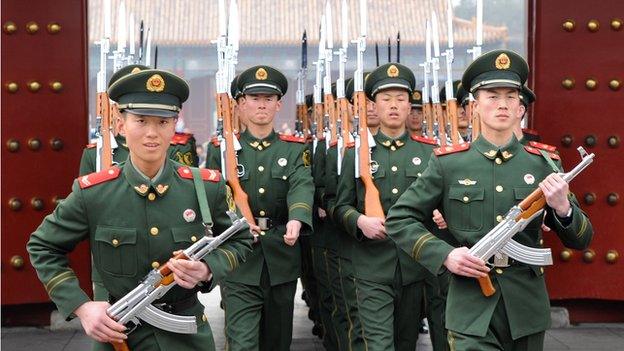Japan approves record 4.98 trillion yen defence budget
- Published
Japan's resurgent army - explained in 60 seconds
Japan's cabinet has approved a record 4.98 trillion yen (£28bn, $42bn) budget for defence spending, amid a long-running maritime dispute with China.
The new budget represents a 2.8% rise from the previous fiscal year. It marks the third year of increased spending after a decade of cuts.
New Defence Minister Gen Nakatani said it was needed to deal with the "changing situation" around Japan.
The money is expected to go towards patrol aircraft and vessels.
These include 20 maritime patrol aircraft, five crossover aircraft - which have both airplane and helicopter functionalities - and six stealth fighters.
The defence ministry is also planning to buy 30 amphibious vehicles and an early-warning aircraft, which can detect vessels and other aircraft from a long distance.
The approval comes after last year's successful push by Prime Minister Shinzo Abe to reinterpret the country's pacifist constitution and allow the military to come to the aid of an ally under attack, which some of Japan's neighbours saw as a move towards increased militarism.
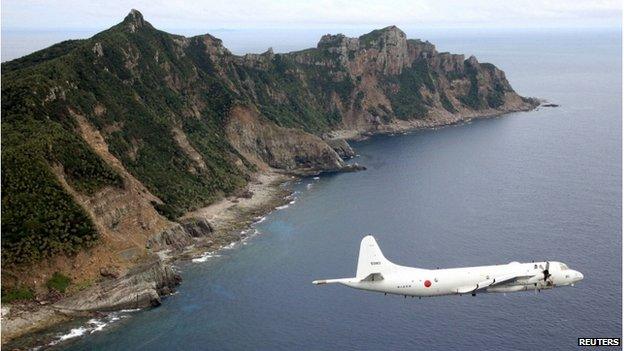
The disputed East China Sea islands are claimed by both Japan and China
Dispute over islands
Beijing and Tokyo are engaged in a bitter dispute in the East China Sea over islands known as Senkaku in Japan and Diaoyu in China.
The islands are controlled by Japan. But since the Japanese government purchased three of them from their private Japanese owner in 2012, a long-simmering row over their ownership has escalated dramatically.
Mr Nakatani, who was appointed defence minister in December, said on Sunday that "the situation around Japan is changing".
"The level of defence spending reflects the amount necessary to protect Japan's air, sea and land, and guard the lives and property of our citizens."
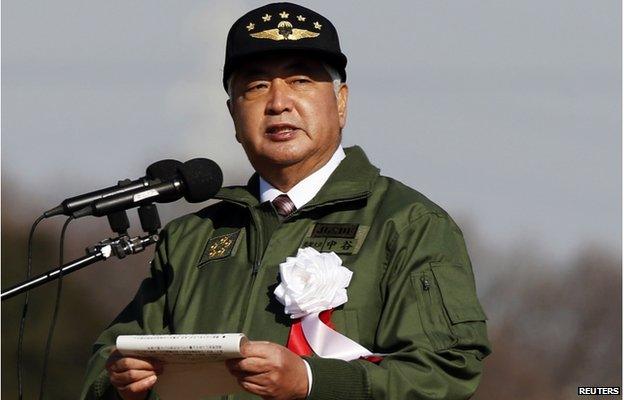
Mr Nakatani was speaking on Sunday at a military drill for airborne troops
He noted that Chinese naval ships were appearing more frequently near Japan's waters and its fighter jets were being flown "abnormally close" to Japanese aircraft.
Mr Nakatani's statements, made at a military drill for airborne troops, prompted criticism from China, which said its maritime activities were "completely legitimate".
China has also seen a sharp increase in its official defence budget, which is more than two and half times larger than Japan's.
The US has by far the world's largest military budget, spending $600bn on defence last year.
Japan's defence spending boost is part of a record 96.3 trillion yen overall budget for the government for the coming fiscal year.
Social security spending, including care for the elderly, has also been boosted.
It is being financed partly from increased revenues from last year's unpopular increase in the sales tax, as well as the issuing of government bonds, which has gone down from 40% last year to 38% this year.
- Published29 August 2014
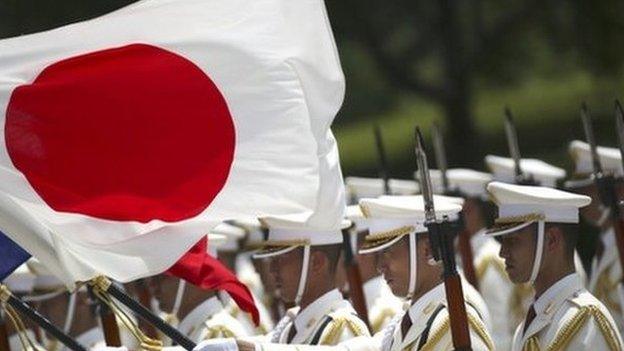
- Published5 August 2014
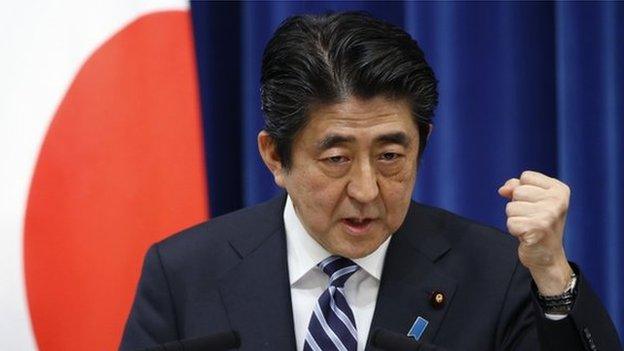
- Published1 July 2014

- Published2 July 2014
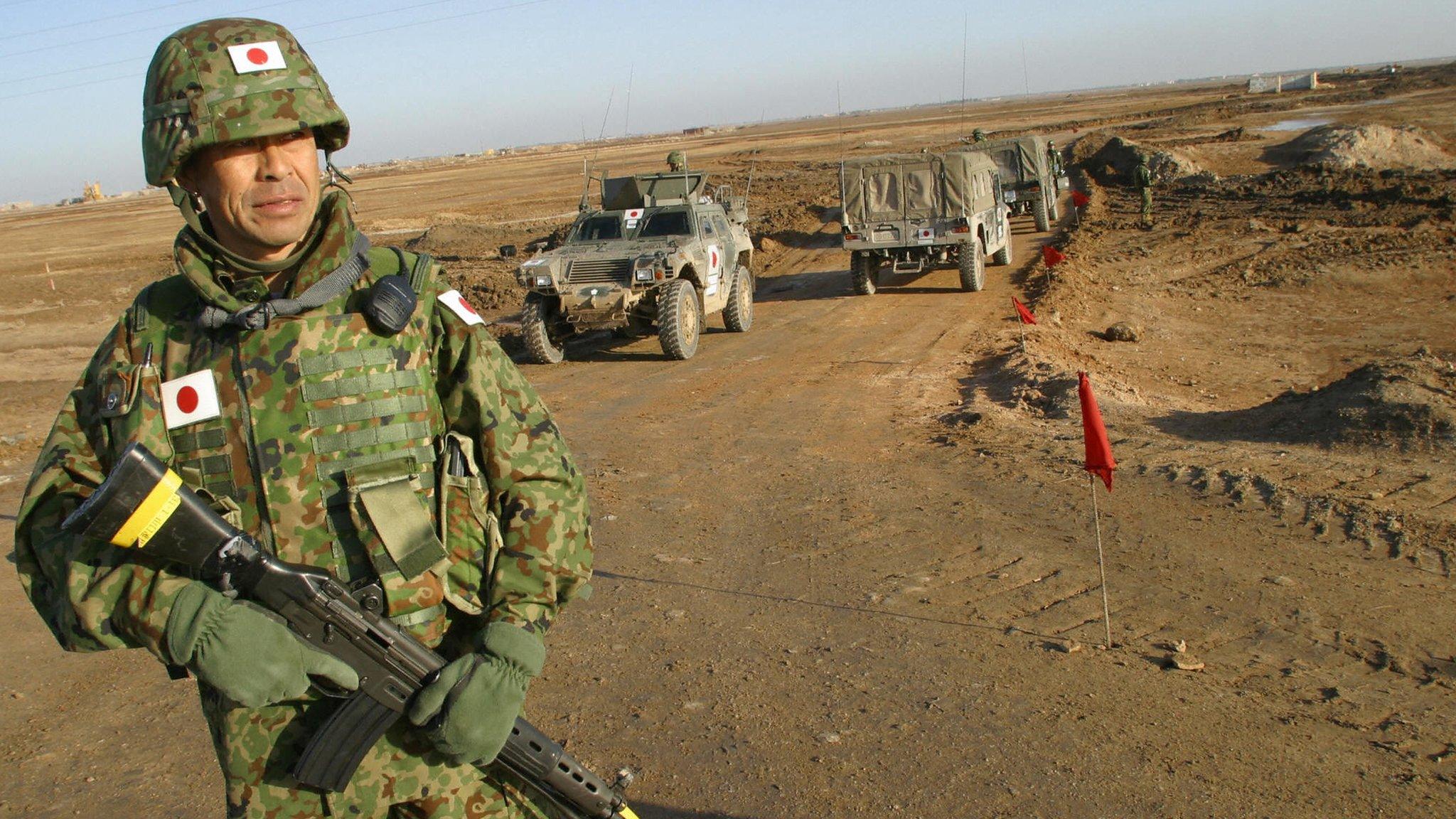
- Published10 November 2014
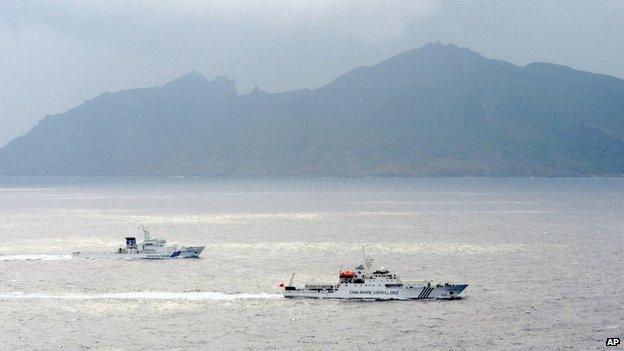
- Published5 February 2014
